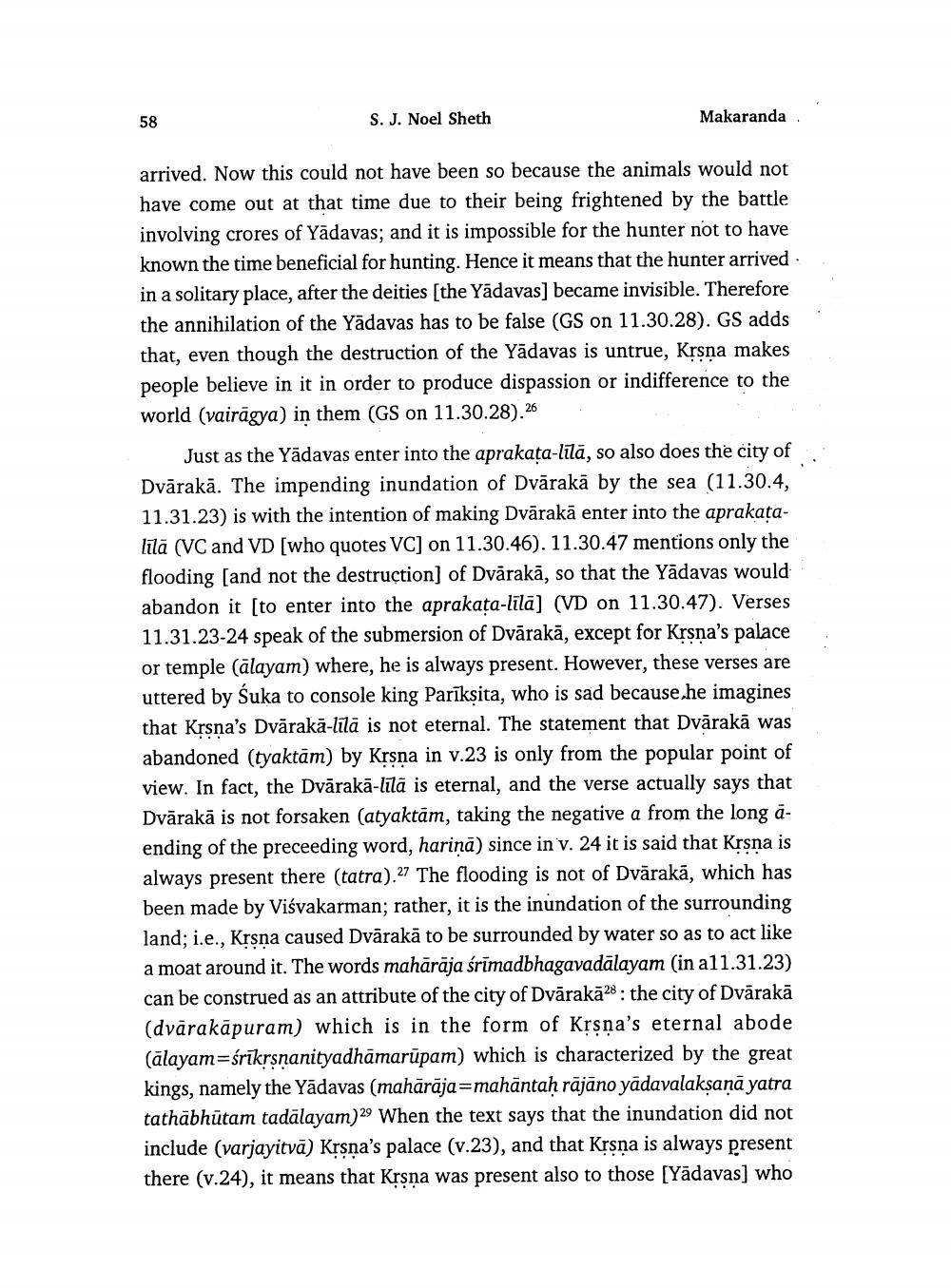________________
58
S. J. Noel Sheth
Makaranda
arrived. Now this could not have been so because the animals would not have come out at that time due to their being frightened by the battle. involving crores of Yadavas; and it is impossible for the hunter not to have known the time beneficial for hunting. Hence it means that the hunter arrived in a solitary place, after the deities [the Yadavas] became invisible. Therefore the annihilation of the Yadavas has to be false (GS on 11.30.28). GS adds that, even though the destruction of the Yadavas is untrue, Krsna makes people believe in it in order to produce dispassion or indifference to the world (vairagya) in them (GS on 11.30.28).
Just as the Yadavas enter into the aprakața-lilä, so also does the city of Dvaraka. The impending inundation of Dväraka by the sea (11.30.4, 11.31.23) is with the intention of making Dvärakä enter into the aprakatalilä (VC and VD [who quotes VC] on 11.30.46). 11.30.47 mentions only the flooding [and not the destruction] of Dvärakä, so that the Yadavas would abandon it [to enter into the aprakaṭa-lilä] (VD on 11.30.47). Verses 11.31.23-24 speak of the submersion of Dvaraka, except for Krsna's palace or temple (alayam) where, he is always present. However, these verses are uttered by Suka to console king Parīksita, who is sad because.he imagines that Krsna's Dvārakā-lilä is not eternal. The statement that Dvärakā was abandoned (tyaktam) by Krsna in v.23 is only from the popular point of view. In fact, the Dvärakä-lilä is eternal, and the verse actually says that Dvaraka is not forsaken (atyaktām, taking the negative a from the long aending of the preceeding word, harina) since in v. 24 it is said that Kṛṣṇa is always present there (tatra). The flooding is not of Dväraka, which has been made by Viśvakarman; rather, it is the inundation of the surrounding land; i.e., Krsna caused Dvärakā to be surrounded by water so as to act like a moat around it. The words mahārāja śrimadbhagavadālayam (in a11.31.23) can be construed as an attribute of the city of Dvaraka28: the city of Dvārakā (dvärakāpuram) which is in the form of Krsna's eternal abode. (alayam śrikṛṣṇanityadhämarüpam) which is characterized by the great kings, namely the Yadavas (mahārāja=mahäntaḥ rājāno yādavalakṣaṇa yatra tathabhutam tadalayam)" When the text says that the inundation did not include (varjayitvä) Kṛṣṇa's palace (v.23), and that Kṛṣṇa is always present there (v.24), it means that Kṛṣṇa was present also to those [Yädavas] who




